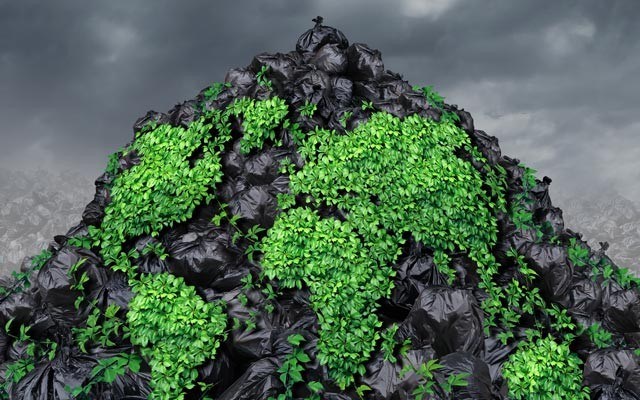When future generations excavate, what will they find from our era? Old pop cans, new atomic isotopes, old cars, and plastic, so much plastic.
For today's populations a historical dig means finding dinosaur bones, extinct species and ancient civilizations. But much of our legacy will be a fully man-made one.
Indeed, a group of scientists is proposing that this age be known as the Anthropocene Age — the Human Age (See The Human Age — The World Shaped by Us, Diane Ackerman for more details).
This gives some context to the proposal made by Association of Whistler Area Residents for the Environment (AWARE) at the last council meeting for the Resort Municipality of Whistler to make a declaration of environmental rights on behalf of the resort's constituents.
In its documentation to council, which was forwarded to staff for study with a request that it not be allowed to linger on the shelf, AWARE pointed out that around the world over 110 nations recognize their citizen's right to live in a healthy environment.
"In Vancouver, the principles of the declaration were combined into their existing Healthy City Strategy (under goal 12); Yellowknife is also integrating the declaration into existing work," state's AWARE's proposal.
"Montreal was the fourth city to support a declaration and they went so far as to (incorporate) a commitment to seek to advance similar declarations in the 80+ municipalities of the Greater Metropolitan Area, representing 3.8 million people, the vote was passed unanimously. In October, Richmond adopted a declaration and has used the momentum and heightened engagement as an opportunity to formalise its own Sustainability Plan."
During Whistler's November election at least one candidate raised Whistler's own sustainability plan, Whistler 2020 (W2020), calling for it to be revisited and updated. It was adopted in 2005 after three years of community consultation and collaboration. Councillors Sue Maxwell and Andrée Janyk asked that AWARE's proposal be considered as expediently as possible at last week's council meeting.
While the priorities of the 2020 plan — enriching community life, enhancing the resort experience, ensuring economic viability, protecting the environment, and partnering for success — remain relevant there is no useful framework, or process, for anyone in the resort, except local government, to use Whistler 2020 as a tool.
AWARE's proposal is based on a campaign championed by the David Suzuki Foundation and Ecojustice, and was highlighted in the recent Blue Dot Tour across Canada.
"In 2013, a report released by the Washington-based centre for global development ranked Canada's environmental protection record dead last among 27 wealthy countries," states the supporting material in Suzuki's campaign to have a healthy environment enshrined in law.
The campaign suggests that a municipal declaration for a healthy environment could reflect an understanding, "that people are part of the environment, and that a healthy environment is inextricably linked to the well-being of our community;
"That all people have the right to live in a healthy environment, including, the right to breathe clean air, the right to drink clean water, the right to consume safe food, the right to access nature, the right to know about pollutants and contaminants released into the local environment, and the right to participate in decision-making that will affect the environment."
Considering Whistler markets itself on portraying exactly this type of environment it seems that adopting such a declaration would only enhance our position globally. But this declaration is not just about appearances — it should be adopted because it is the right thing to do.
Municipal governments make decisions about water uses, waste disposal, emissions; it can set standards for compensation and benefits for employees, housing and even transportation.
If residents want change nationally and globally they have to start the change at home.
If we truly are in the Anthropocene Age, where humans are no longer just interacting with the planet but, in fact, are impacting every facet of it, then we have an even greater responsibility to take action.
Mankind left behind the Holocene Age in the '50s with the detonation of nuclear weapons and the mass production of plastics — about six billion tons have been made with a billion of them dumped, much of it in our seas.
As we move into a new age of our own making isn't it time to take responsibility for it?




